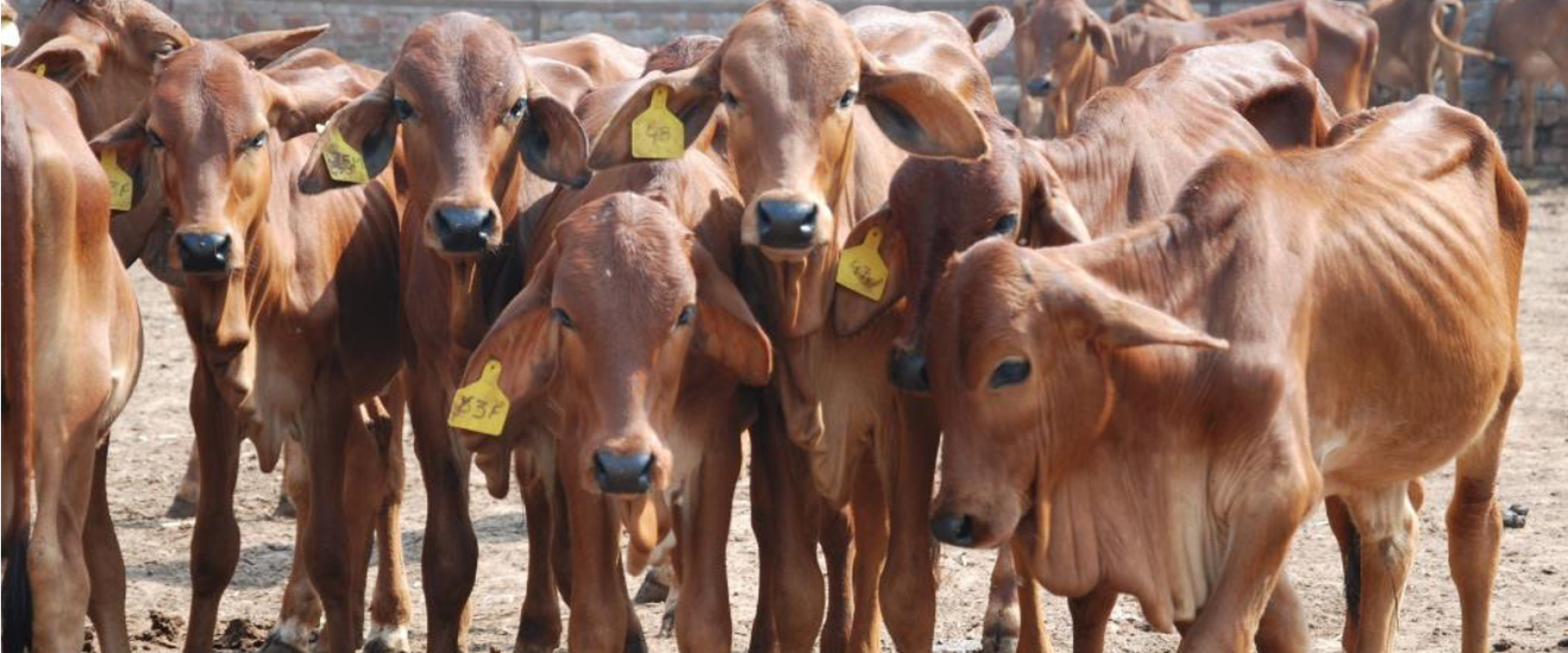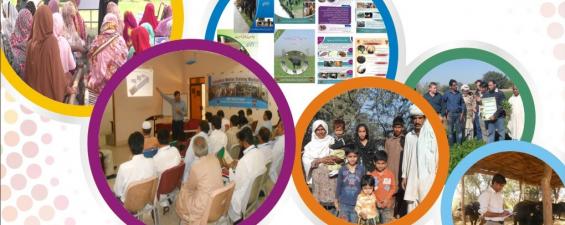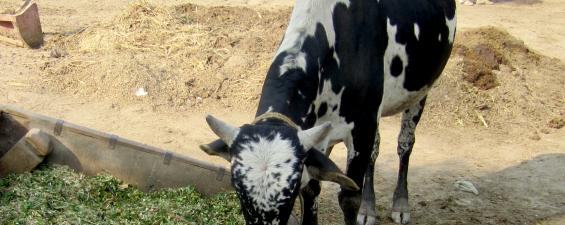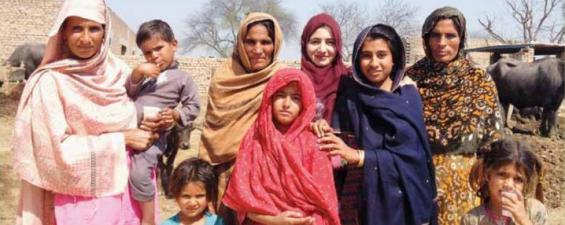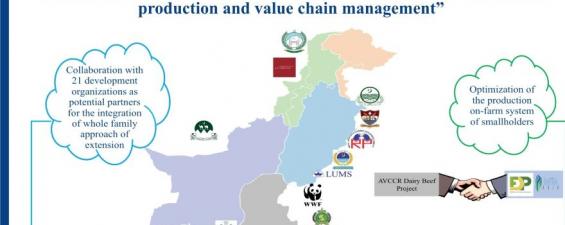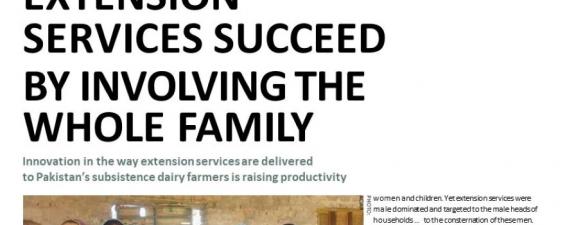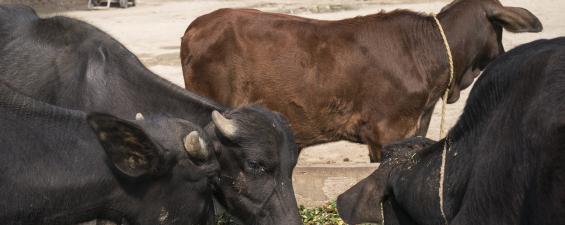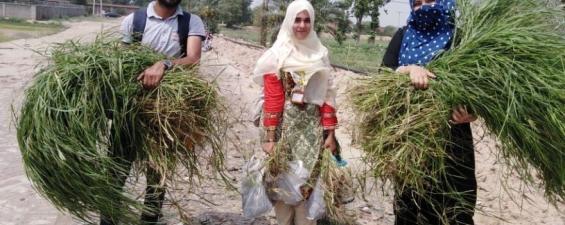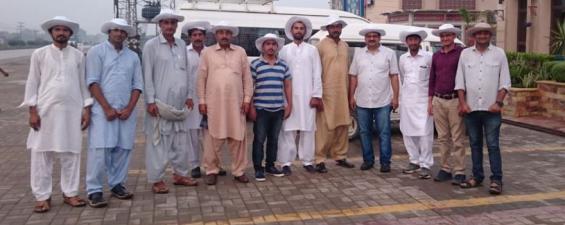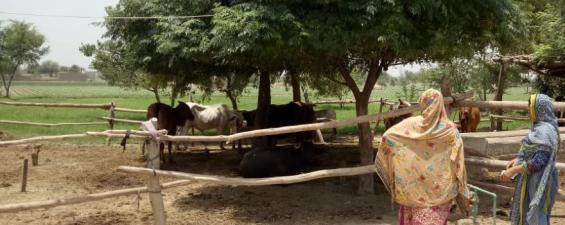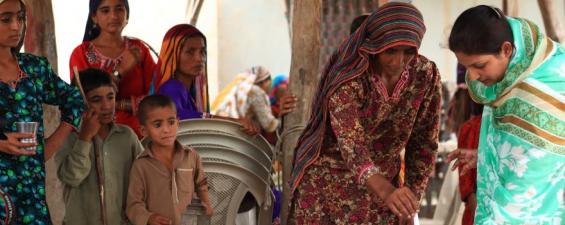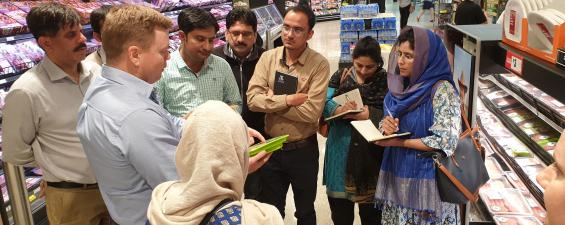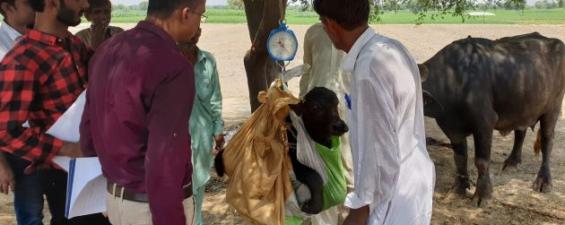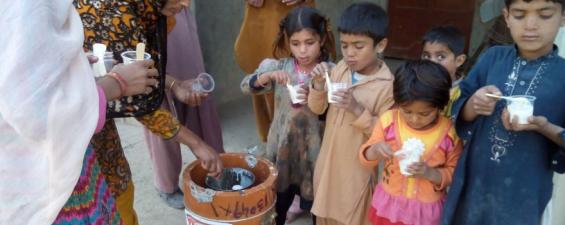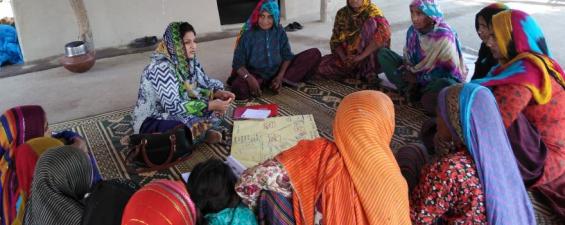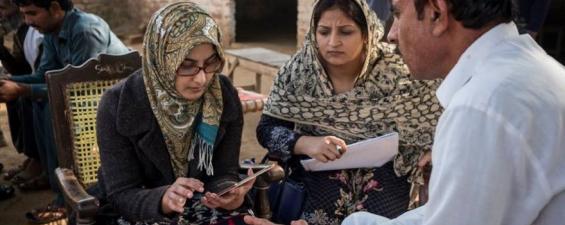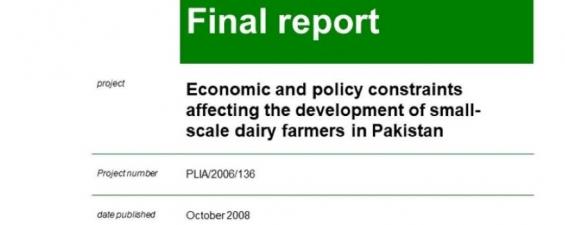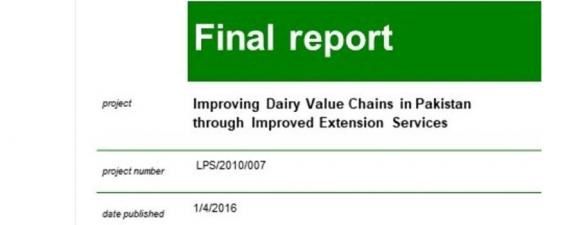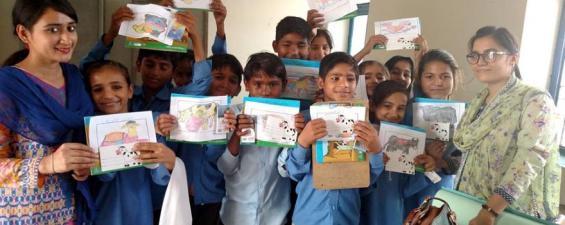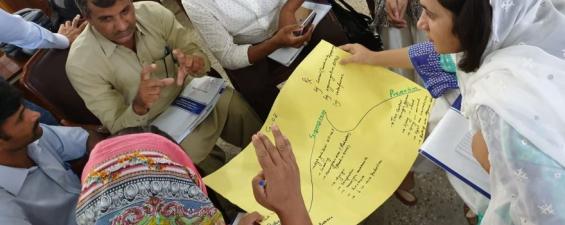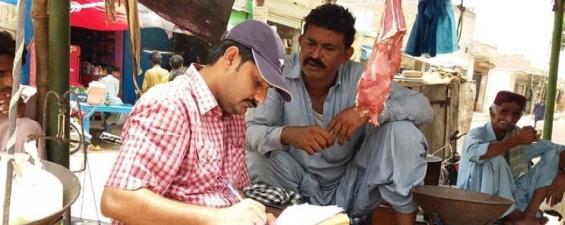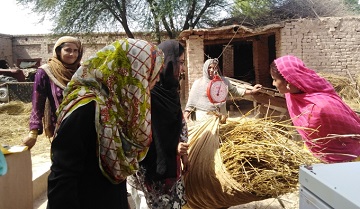
There are nearly 50 million cattle and 40 million buffalo in Pakistan, mostly in very small herds cared for by smallholder families. ACIAR research has focused on understanding the needs as well as the norms and values of collaborating smallholders. This resulted in well-targeted 'whole family' dairy extension approaches. Current work seeks to scale out these learnings, while also exploring avenues for farmers to engage with beef value chains, to diversify their production options.
Current research
Through a decade of research on extension methods, this project team has demonstrated the effectiveness of the ‘Whole Family Extension Approach’ (WFEA). This has effectively transferred specialist knowledge, provided skills and empowered faring families to improve their productivity and livelihoods. By collaborating with public and private organizations in the livestock sector, the team aims to reach a much greater proportion of huge number of families involved in dairying.
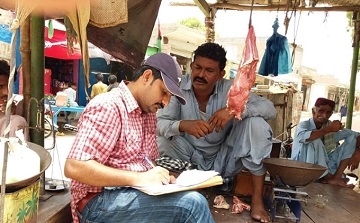
Research into scaling out the WFEA model began in 2017. This new project is researching how effective the extension staff in government services, NGOs and the private sector can be in expanding the beneficiaries of the WFEA approach.
Other projects in Pakistan and elsewhere, are extremely interested in the results of this study as all face similar challenges in scaling out their research outcomes.
Other objectives of the new project are focused on the potential for dairy farm families to turn a profit by raising male calves for the beef market. This entails research into the beef value chain and options to access the market, possibly involving community co-operation.
All the project objectives continue to build deeper levels of understanding of the roles of men, women and youth in the family and community, so that technical findings are based on sound social analysis.
Legacy research
ACIAR supported research with small scale dairy communities from 2006-2016, focusing on extension methodologies. The project worked with men’s and women’s extension groups in each of 56 villages, totalling more than 1500 registered female and male farmers. A whole-family extension approach (WFEA) (with no incentives) resulted in adoption rates of greater than 80% with some messages among these 1500 farmer families with flow-on impact to over 3000 unregistered farming families.
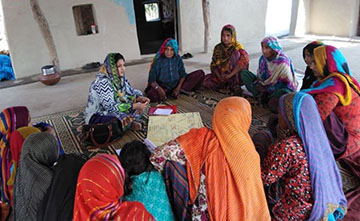
Some preliminary policy research generated a 2008 report reviewed the Australian experiences of dairy industry development and evaluated what principles could be applied to the current situation in Pakistan. This preliminary research has highlighted the key issues for the small holder sector to be:
- the effectiveness and focus of government extension activities
- the development and enforcement of food safety regulations affecting milk handling on-farm, market distribution and dairy product utilisation
- how to handle future requests for government interventions to support prices and farm incomes
- targeted infrastructure improvements to facilitate the transition of small scale producers into the milk processing industry.
Visit the Transforming dairy farming in Pakistan website for more information on this research.
Partners
The Dairy-Beef project has built on more than a decade of experience in farm advisory services and on-farm applied research in Pakistan. It has continued the strong partnerships from the previous project, particularly those established with the University of Veterinary and Animal Science (UVAS) in Lahore and University of Melbourne (UOM), Australia.
Both partners are learning and benefiting from working together to build the team’s capacity, bridging the gaps in knowledge and skills.
Other partnerships in Research and Extension are crucial to the project achieving impact in the medium to long term.
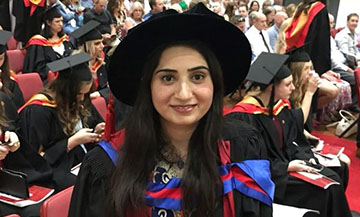
Extension partnerships
The project has wide-ranging engagement with more than twenty organisations to promote the scaling out of the whole-family extension strategy
Extension Partners include Government, NGO, research, academia, private sector and donors groups across Punjab and Sindh. The project is providing multi-disciplinary training workshops to farm advisors from these partner organisations.
This includes strengthening technical and social skills of farm advisors (especially females) to empower them to take ownership of the research findings and whole family engagement.
Research partnerships
In addition to these extension partnerships, the project is also closely engaging the research partners both in Pakistan and Australia. This includes many PhD research studies from Charles Sturt University (CSU) and University of Melbourne, Australia to address the issues of smallholder dairy-beef farmers in Pakistan.
The project is also running various applied on-farm research trials with University of Agriculture (UAF), Faisalabad on fodder and grasses. There are also many calf research trials with Sindh Agriculture University (SAU), Tandojam.
With these partnerships, the project is engaging young researchers and building their capacity for future research needs.
Contact us
Dairy-Beef Project, University of Veterinary & Animal Sciences, Outfall Road, Lahore:
Ph: 042-37212339
